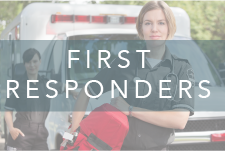Survivor’s Guilt and Coping Mechanisms
- Sep 22, 2021
- 6 min read
Updated: Oct 21, 2025

Experiencing a life-threatening event can be a profound and difficult journey, especially when grappling with the complex emotions that follow. When you survive a situation that others did not, a heavy feeling of guilt can take hold. We understand the weight of these feelings, and we're here to help you navigate this challenging path.
What is survivor's guilt?
Survivor's guilt is the persistent feeling of guilt after surviving a traumatic, life-threatening situation where others did not. It is often a symptom of trauma or PTSD and can manifest in a variety of ways, including flashbacks, feelings of hopelessness, and a sense of disconnection.
The feelings of hopelessness and depression that come with survivor's guilt can make it difficult to start the healing process. However, by taking small, intentional steps to process your experience, you can begin to rebuild your mental and emotional resilience. Read on to learn more about how to do just that.
Coping With Survivor’s Guilt
Anyone who has lived through disastrous events may find that guilt can soon dictate one’s mind. Making it through a life-threatening situation can feel like a blessing at the time, but one’s perspective can suddenly change as one realizes that others may not have been as lucky.
While first responders and war veterans can be at an increased risk to suffer from survivor’s guilt, this kind of guilt can affect anyone experiencing different kinds of trauma. Understanding survivor’s guilt and coping mechanisms is important for anyone struggling to process these feelings and move toward healing.
Learning to cope with survivor’s guilt is essential to regaining a sense of happiness and stability in one’s daily life. However, addressing one’s traumatic past and reconciling one’s place as a survivor is a complicated and difficult journey.
Survivor’s Guilt and Coping Mechanisms: Defining Survivor’s Guilt
Survivor’s guilt is a term that indicates prevailing feelings of guilt following life-threatening situations. It is typically a symptom of a larger trauma or post-traumatic stress disorder (PTSD). This guilt manifests following an event where an individual survived, but others in the same situation did not.
Incidents of violence such as terrorist attacks or shootings can commonly leave those who survived with survivor’s guilt following the experience. However, this guilt is not relegated to these sources alone. Cancer survivors, survivors of car accidents or natural disasters, family members with life-threatening hereditary illnesses, and more can all cause one to feel guilty about their survival.
While guilt, as indicated in the name, is the most prevalent part of survivor’s guilt, it also presents a myriad of other symptoms. Flashbacks to the traumatic event can be common, as well as feelings of helplessness, fear, confusion, irritability, or hopelessness. Depression and disconnection are also prevalent. An individual suffering from survivor’s guilt may feel as if they have survived based on pure luck or that they somehow do not deserve to have survived.
Much of one’s guilt can come as a result of two responses to these events. Some may feel guilty about the self-preservation actions taken during these traumatic events. Others can look back on the event and blame themselves for the things they did not do or actions they did not take. Some do this regardless of how fair it is to blame themselves for their behavior during this time.
Why Survivor’s Guilt Is So Prevalent
There can be many different ways an individual might blame themselves for unforeseen events. Those who suffer from survivor’s guilt often blame themselves for the disaster regardless of the unfair, impossible judgments against themselves.
Feeling like they should have been able to somehow predict the disaster or blaming oneself are common reactions. These events can continue to replay in one’s mind in the form of invasive thoughts and self-doubt.
Addressing Survivor’s Guilt
The overwhelming feelings of hopelessness, depression, and other symptoms that one may be feeling can make it difficult to even begin overcoming this trauma. It is also possible that many believe they do not deserve happiness or healing as a result of this guilt.
However, while overcoming all of one’s guilt at once can be a journey to futility, taking tentative steps to process the experience can begin to rebuild one’s mental and emotional resilience as one reconciles their experiences.
Allowing the Feelings to Flow
Survivor’s guilt is inherently illogical and irrational. However, that does not mean that one’s feelings surrounding the event are not real. Anxiety, depression, hopelessness, and more are all debilitating emotions to experience. The first step towards addressing this guilt and trauma is to find a safe space to allow oneself to express these emotions.
Bottling up these intense feelings can cause the development of unhealthy, and even self-destructive coping strategies. Having a space to cry, be angry, sad, or whatever else one is feeling is necessary to allow these emotions to flow, and begin to process and acknowledge these pent-up emotions.

Getting Connected
Getting connected with others can take two distinct forms. For some, this can mean meeting with others who are survivors of their own trauma and experiencing many of the same daily difficulties. Others may interpret this as getting connected with one’s community.
This could entail finding a way to give one’s own life continued meaning through volunteer efforts, community involvement, becoming a donor, or giving back in other ways. Meeting with others is essential for adding perspective and meaning to one’s survival, challenging the notions of guilt.
Create a Day of Remembrance
Having a dedicated day in which to acknowledge those who had lost their lives can create a great space for individuals to express their feelings. Participating in a day of mourning can help an individual give their emotions a safe space to manifest while allowing others to gather in solidarity and memory of these traumatic events.
While making it through these days can be exceptionally difficult, they can also help an individual continue to remember, admire, and treasure the lives of others — both those who had lost their lives and those still around today.
Frequently Asked Questions:
• What are some common symptoms of survivor's guilt?
Beyond the obvious feelings of guilt, people who experience this condition may also have flashbacks, feelings of helplessness, fear, irritability, or depression.
• Who can suffer from survivor's guilt?
While it is common in first responders and war veterans, this type of guilt can affect anyone who has lived through a traumatic event, including cancer survivors, or those who have been through a car accident or natural disaster.
• Why do people often blame themselves for what happened?
Individuals may blame themselves unfairly for the disaster, feeling they should have somehow been able to predict or prevent it, regardless of how irrational these thoughts are.
• What is the first step to addressing this guilt?
The first step is to find a safe space where you can express your emotions without judgment. It is important to allow yourself to feel and process these intense emotions rather than bottling them up.
• How can connecting with others help with survivor's guilt?
Connecting with others, whether it is with fellow survivors or through community involvement, can add perspective and meaning to your survival. It also helps to challenge the feelings of guilt you may be experiencing.
Navigating the complex emotions of survivor's guilt is a journey that no one should have to take alone. At Chateau Health and Wellness Treatment Center, we understand the profound impact trauma can have on your life. Our team is committed to providing a compassionate and supportive environment where you can safely process your experiences and begin to heal. We encourage you to reach out to us at (435) 222-5225 so we can begin this important work together, helping you move toward a life of peace and renewed purpose.

About The Author
Ben Pearson, LCSW - Clinical Director
With 19 years of experience, Ben Pearson specializes in adolescent and family therapy, de-escalation, and high-risk interventions. As a former Clinical Director of an intensive outpatient program, he played a key role in clinical interventions and group therapy. With 15+ years in wilderness treatment and over a decade as a clinician, Ben has helped countless individuals and families navigate mental health and recovery challenges.
Danny Warner, CEO of Chateau Health and Wellness
Brings a wealth of experience in business operations, strategic alliances, and turnaround management, with prior leadership roles at Mediconnect Global, Klever Marketing, and WO Investing, Inc. A graduate of Brigham Young University in Economics and History, Danny has a proven track record of delivering results across diverse industries. His most transformative role, however, was as a trail walker and counselor for troubled teens at the Anasazi Foundation, where he directly impacted young lives, a personal commitment to transformation that now drives his leadership at Chateau.
Austin Pederson, Executive Director of Chateau Health and Wellness
Brings over eight years of experience revolutionizing mental health and substance abuse treatment through compassionate care and innovative business strategies. Inspired by his own recovery journey, Austin has developed impactful programs tailored to individuals facing trauma and stress while fostering comprehensive support systems that prioritize holistic wellness. His empathetic leadership extends to educating and assisting families, ensuring lasting recovery for clients and their loved ones.









